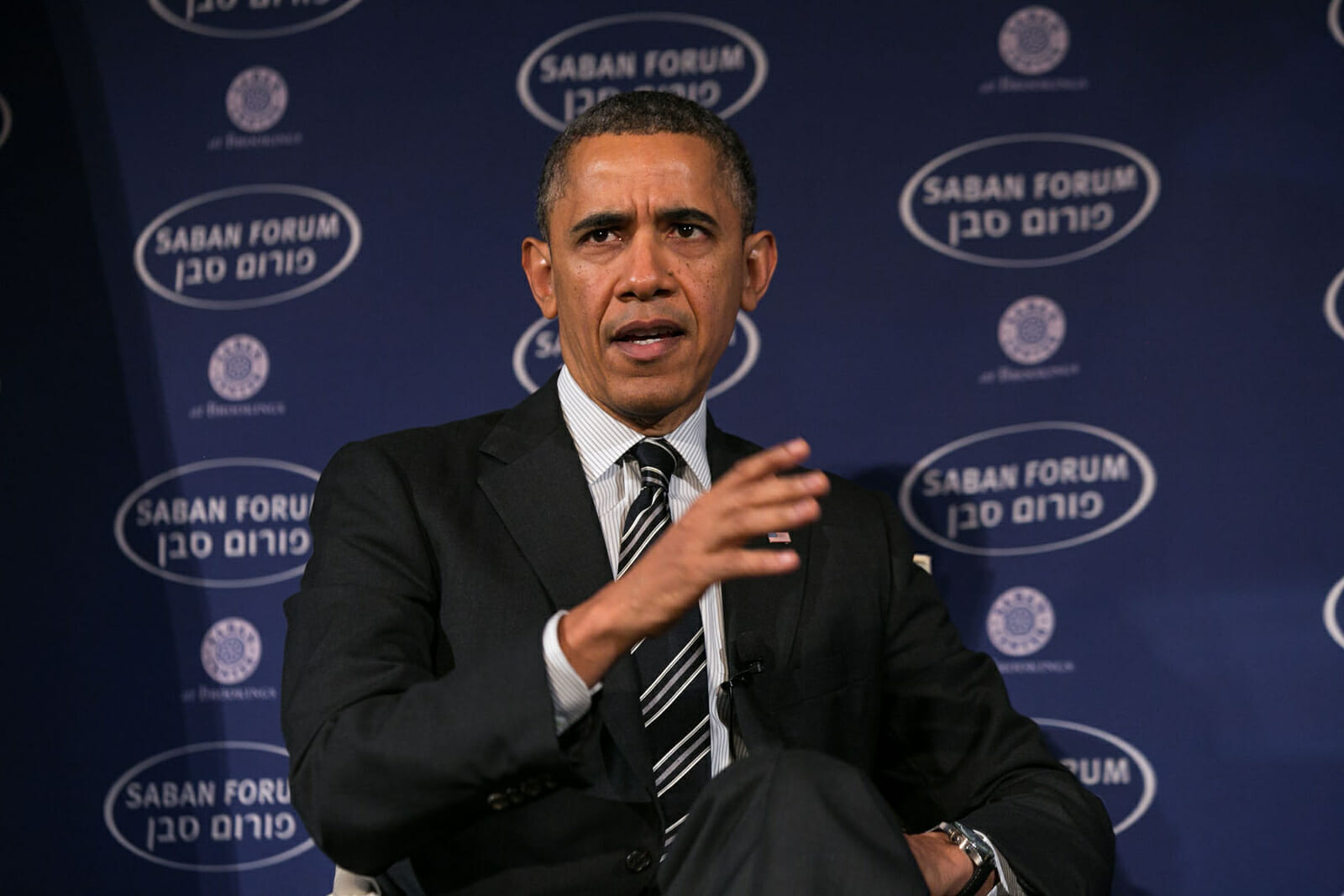
Mirrored Politics and the Iran Deal
When President Rouhani was popularly elected last June, the factors that led to his victory bore quite a resemblance to President Obama’s victory in 2008, albeit with obvious exceptions. Both were never given a chance to win in the face of other establishment candidates, both were catapulted by the youth vote, both were welcomed to an economy in tatters, both were replacing presidents that were unpopular at home and abroad, and perhaps most importantly, both gave their respective populations an unprecedented sense of hope.
This theme of “mirrored politics” has yet to finish. Rouhani and Obama find themselves in similar situations trying to balance the political force of their respective domestic hardliners as they attempt to secure a historic nuclear deal after 34 years of hostility. For their mission to succeed, both Presidents will need to force each respective opposition to align, for just long enough that Secretary of State John Kerry’s and Foreign Minister Javad Zarif’s signatures have dried at the bottom of a comprehensive deal. Calling this process “extremely delicate” is putting it nicely.
In the past several weeks, since the interim “framework agreement” was signed by Iran and the world powers, the delicate balance has been on full display in both Washington and Tehran.
On the American side, hardliners in Congress have been pushing for additional sanctions that would invalidate the deal and kill the progress that has been made. In order to prevent this diplomatic suicide, the Obama administration has gone all-out, including dispatching Kerry and other top officials last week to testify before Congress to convince them to stop their deal-killing proposals.
While the White House managed to delay consideration of new sanctions this year, their efforts did not stop Senators Robert Menendez (D-NJ) and Mark Kirk (D-IL) from introducing a brand new sanctions bill this week, along with fifteen members of the President’s party, in clear defiance of the White House. The President immediately issued a rare veto threat against the bill, which risks scuttling a deal and perhaps what the president views as his legacy.
President Obama had already tried to entice Congress to avoid introducing additional diplomacy killing deals by adding 19 companies and individuals to the current sanctions blacklist- a first of such designations since Rouhani has been in office. In response, Iran temporarily stepped away from the talks after they said the move violated the spirit of the talks. The concern now is that these political maneuvers from both sides will eventually come back to haunt us if the United States and Iran return to a state of constant escalations that could truly impact the talks to the point of no return.
This is exactly the type of environment the hardliners on the Iranian side are looking for. Although Supreme Leader Khamenei has given Rouhani the green light to continue his diplomatic dealings with the west, the temporary cover has been far from absolute. Just the other week, Rouhani gave a speech at Shahid Beheshti University, only to be welcomed by not only students demanding that he make good on his campaign promises to release political prisoners, but also the chants of hardline Basiji students asserting Iran’s nuclear rights. From the well-documented “death to America” chants to chants denouncing the other students as green movement “hypocrites,” Rouhani was forced to call for national unity and indirectly denounced the Basijis by declaring “calm” and “reason” as the recipe for problem-solving success. Rouhani, however, was not the only one of his moderate cabinet facing the heat of the opposition.
Earlier this month, Zarif faced the wrath of Chief General Mohammad Ali Jafari, after Zarif admitted that the US could paralyze Iran’s current defensive system “with one bomb.” Cleverly repurposing Rouhani’s comments that the revolutionary guards should stay out of politics, Jafari told the Foreign Minister to stay out of military affairs. Members of the Iranian Majlis, or parliament, quickly began to question whether Zarif, who received a hero’s welcome in Tehran after securing the interim deal, should remain in his post. The predicament of a moderate Presidential cabinet trying to balance diplomacy abroad with political interests at home is not limited to just the American side.

